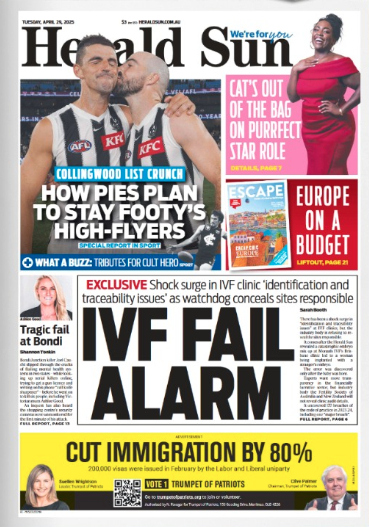Monash IVF narrative out of control as CEO quits
Monash IVF can’t keep itself out of the headlines lately. And its latest PR disaster has come at a big real-world, business and reputational cost, as former Mumbrella editor and comms expert Vivienne Kelly explains.
The Monash IVF CEO is gone.
The Herald Sun used the inflammatory word “sacked” in its email blast on Thursday morning, and “axed” in its opening paragraph. The official ASX release was a little softer, calling Michael Knaap’s departure a resignation, which the Board acknowledged and respected.

Either way, it’s the latest in a string of dramatic headlines for a company that usually prefers to focus on positive, miraculous and heart-warming narratives.

